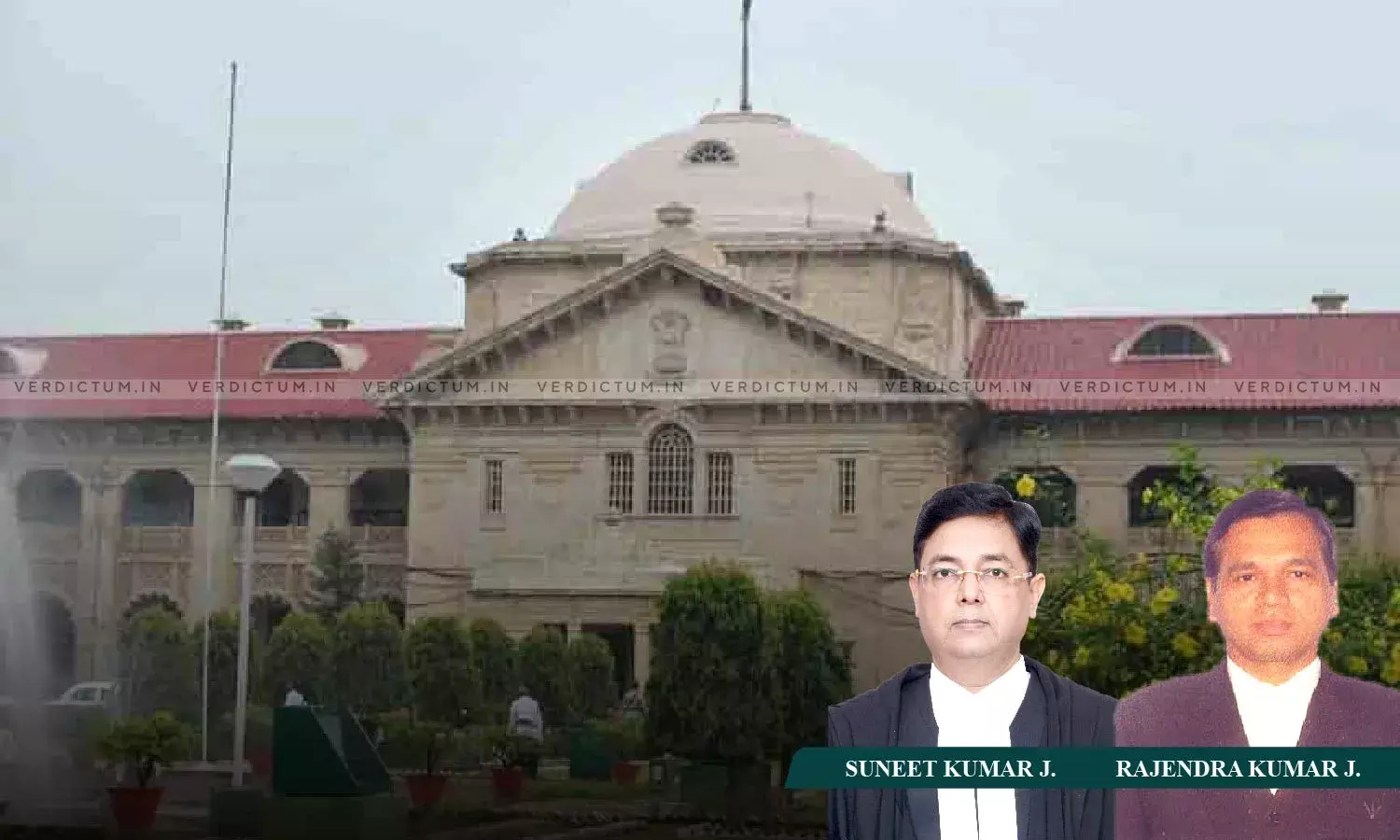Absence Of Information From Bank Record Won’t Prove Absence Of Knowledge To Officers: Allahabad HC Reiterates

The Allahabad High Court has reiterated that the absence of information from the records of the bank would not prove the absence of knowledge to the officers.
A Division Bench of Justice Suneet Kumar and Justice Rajendra Kumar asserted, “It appears that the bank in order to protect and cover-up the acts of its officer seized the bank account and FDRs of the second petitioner in retaliation. It is not the case of the bank that the then officers (on date of dissolution of the firm) had no knowledge, and/or, were not aware of the dissolution of the firm and reconstitution of the proprietorship firm by the same name.”
The Bench was dealing with a petition challenging a seizure order through an amendment application and another order directing a proprietor to be jointly and severally liable to make good the loss caused to the bank.
Senior Advocates M.D. Singh Shekhar and M.C. Chaturvedi represented the petitioners while Advocates Narendra Kumar Pandey and Sudha Pandey represented the respondents.
In this case, a proprietorship firm was engaged in the business of construction and had a current account with an overdraft facility in a bank. The statement of account was filed to the writ petition to substantiate that on the date when the application was moved by the proprietor of the said firm informing the respondent that the proprietor was no longer a partner, the outstanding balance in that account of the dissolved firm was ‘zero’.
The proprietor was neither named in the FIR nor, was he charge-sheeted. An application under Section 319 of the Code of Criminal Procedure, 1973, was filed by the prosecution during the trial seeking to summon the proprietor to face trial along with other co-accused. The application was rejected. The order was not challenged, consequently, attained finality.
The High Court in view of the above context observed, “The transactions pertaining to the partnership firm came to an end with its dissolution. The forming of proprietorship firm was in the same name but was a different and distinct entity. There was neither the extension, nor, the renewal of the partnership. The proprietorship was a unilateral act on the part of its proprietor i.e. Ranveer Singh. The second petitioner had no role in the constitution of the proprietorship firm in the same name.”
The Court further observed that the petitioner i.e., the proprietor cannot be bound for the loss for reason that the fraudulent act was committed after the dissolution of the firm and after due information to the respondent i.e., the bank.
“There is no reason to disbelieve that the second petitioner had not given information to the bank for the reason that he was the outgoing partner and would not entail any liability upon himself. Further it cannot be ruled out that the officers of the bank were not involved in the fraud by clearing the fake cheque. Merely because they were not charge sheeted, would not mean that the then officials of the bank were not in complicity with Ranveer Singh in commission of the fraud”, said the Court.
The Court noted that in any case, the Trial Court’s judgment would not have a bearing on the rights and liability of the parties for the loss, including the contract made with the bank.
“The denial of the notice/information by the bank is not emphatic and not by the then officer. The present officers of the bank (and not the then officer) has sworn the paragraphs on personal knowledge”, the Court also noted.
The Court, therefore, directed the bank to release the bank account, F.D.Rs. and any other security asset, seized from the petitioners and held that the petitioners are entitled to interest as admissible on the deposits/F.D.Rs. due.
Accordingly, the Court allowed the plea and quashed the order.
Cause Title- M/s Shiva Enterprises and Another v. Union Of India Thru Secy. and Others
Click here to read/download the Judgment


